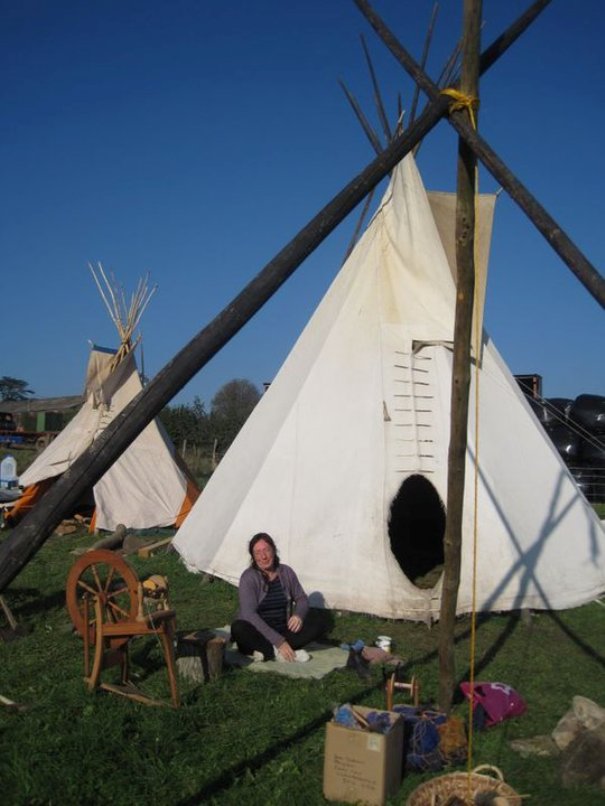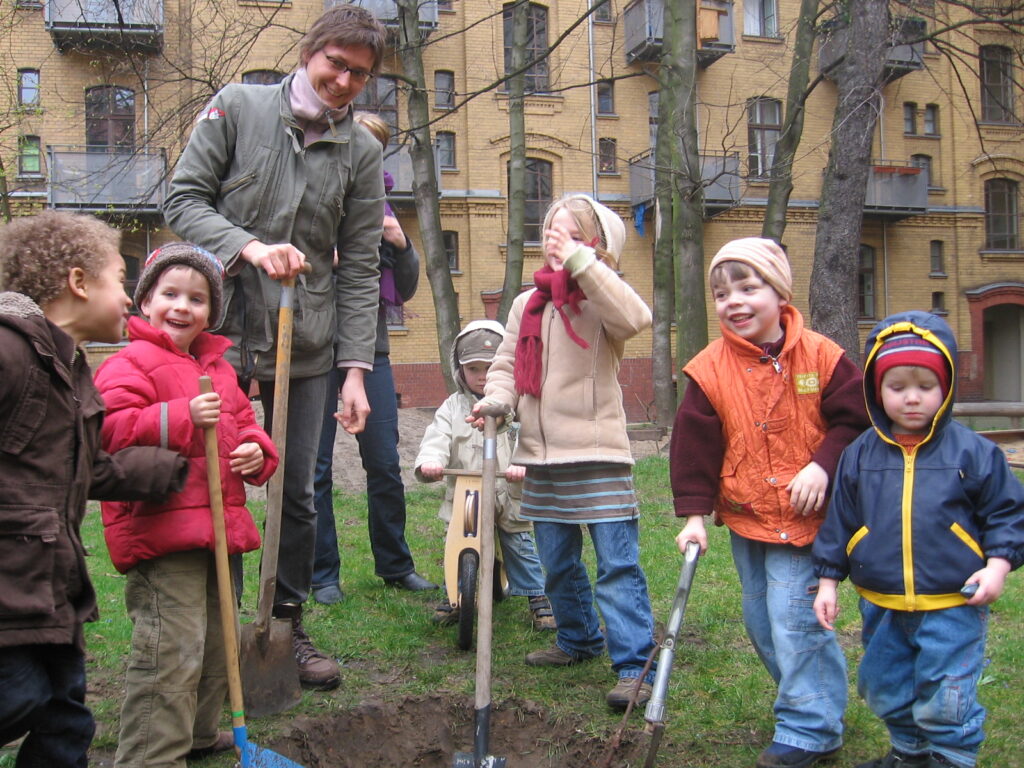You’ve lived for 25 years in a wonderful house in the Welsh countryside. Your grown children want to come back to live with you and raise their own children there. But your ex-husband wants a payout of his share of the value of your family home, which you can’t afford. What do you do?
If you’re Sue Dolman, you start a housing cooperative.
For several years, Sue thought she would be forced to sell her home, but then her old friend Steve Jones helped her come up with a better solution. In 1995, he had been one of the founders of the Chickenshack housing cooperative, also in Wales. On 17 September 2010, the same day Sues sons partner gave birth to twins, the Permanent Housing Co-operative Limited was officially founded. A fully mutual housing cooperative, it was able to borrow the money necessary to buy the house and pay off Sues ex-husband.
Now the house is no longer mother’s house but belongs collectively to its members, most of whom are still family, says Sue. Anyone is welcome to apply to live here when rooms become available.
We think that the power of our story is that it sets a model for families and others to secure housing otherwise threatened by relationship break-up, she continued. It also enables returning offspring to feel more empowered in a family home and frees older parents from home maintenance and enables them to become free financially from the family home. She and her partner moved into a yurt in the garden and now have a granny barn at the end of the garden. Her three sons who returned to the house have been extending it to make space for more people. Bills etc. are shared, she said, and sharing the cost of living enables us all to be more creative with our time.
The family has been able to use the cooperative legal structure to access funding to put in solid wall insulation and solar panels on the roof. One of the most interesting aspects of the Permanent Housing cooperative is its close ties to permaculture. We aim to live with the principles of permaculture and regeneration, says Sue about the cooperatives mission.
A set of design principles and ethics based on the study of ecology, permaculture seeks to develop sustainable human settlements, gardens and farms by modelling them on natural ecosystems. Steve first came into contact with permaculture while making cheese on a farm in Zimbabwe, where he saw how application of its principles could lead to high productivity even in marginal or degraded environments.
Steve is now a permaculture project development manager, teacher and garden designer and one of the founders of the Sector39 association, which sets up community projects and sustainable gardens and runs courses in permaculture design, forest gardening, organic vegetable gardening and more esoteric subjects like yurt making and building your own wind turbine.
Steve said it was easy to decide to use permaculture as the operating system for both Chickenshack and Permanent Housing. The principles of permaculture and cooperatives weave together, he said. Permaculture is based on the ethics of looking after the earth and people, setting limits to consumption and giving away surplus. The 12 design principles of permaculture, developed by Australian ecologist David Holmgren, echo many of the ideals behind cooperatives: obtain a yield, apply self-regulation and accept feedback, integrate rather than segregate, use small and slow solutions, use and value diversity.
The success of the housing cooperative has inspired its members to look for more land to acquire. We do’nt want to just create cheap housing for ourselves, but also sustainable livelihoods, says Steve. With a loan from Triodos, the ethical bank, they are hoping to buy a plot and set up a Community Interest Company or a worker cooperative, bringing in more members and creating a permaculture research centre. We want a food forest on a big scale, says Steve, with thousands of fruit trees, open to the community.



